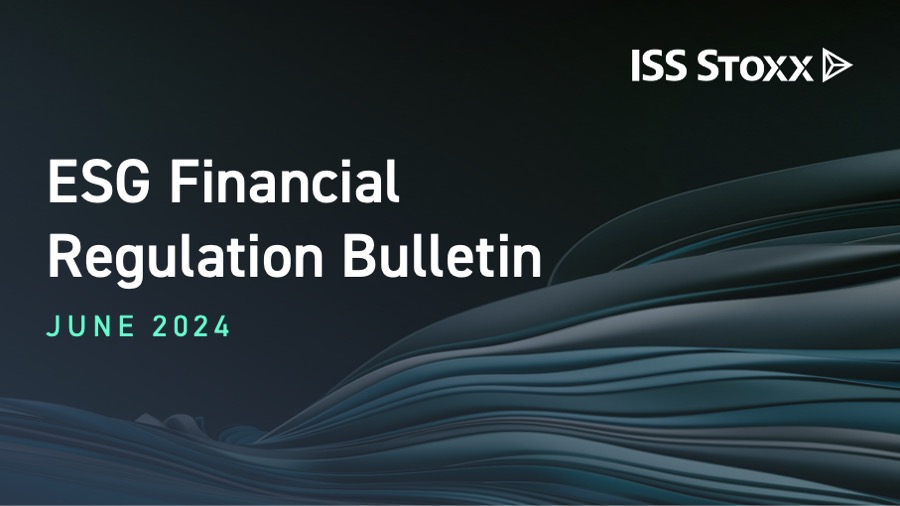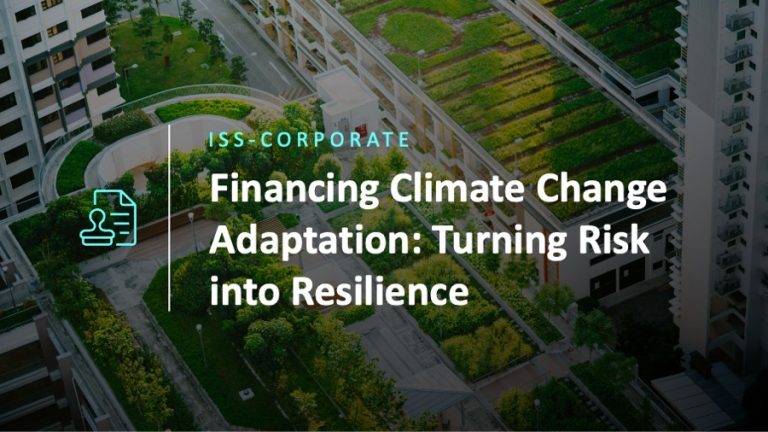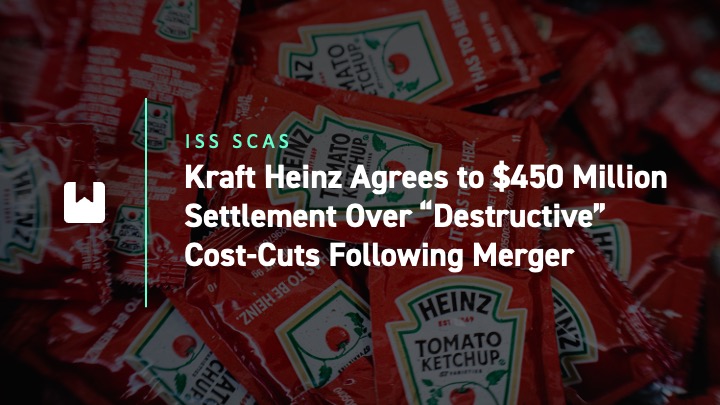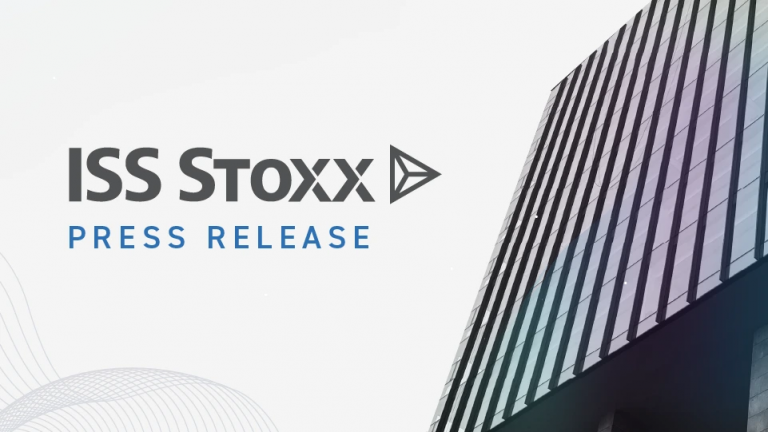The latest regulatory developments related to ESG and stewardship worldwide.
This monthly bulletin produced by ISS STOXX’s Regulatory Affairs & Public Policy group provides a review of regulatory developments that may be relevant to investors and companies.

ISSB
International Financial Reporting Standards (IFRS) Foundation and European Financial Reporting Advisory Group (EFRAG) Announce Joint Guidance on Alignment and Interoperability of Sustainability Disclosure Standards
On May 2, the International Financial Reporting Standards (IFRS) Foundation and European Financial Reporting Advisory Group (EFRAG) published guidance on the alignment and interoperability of their respective reporting standards. The International Sustainability Standards Board’s IFRS Sustainability Disclosure Standards (ISSB Standards) aim to become the global standard for sustainability-related financial disclosure; meanwhile, EFRAG’s European Sustainability Reporting Standards (ESRS) will govern sustainability-related disclosure in the European Union.
The IFRS Foundation and EFRAG guidance outlines the alignment between the two sets of disclosure standards with respect to key concepts such as materiality, presentation, and disclosures for sustainability topics other than climate, as well as information for corporates on how to come into compliance with each of the standards. Speaking about the guidance, ISSB Chair Emmanuel Faber said, “Thanks to our deep collaboration with EFRAG, companies can use our joint guidance as a module for providing the global baseline while also providing incremental disclosures required within the European Union.”
IFRS Foundation and Global Reporting Initiative Begin Collaboration with Biodiversity Methodology Pilot
On May 24, the Global Reporting Initiative (GRI) and the IFRS Foundation announced that they will collaborate on joint projects to ensure interoperability between their global sustainable reporting standards. Building on their 2022 “Memorandum of Understanding,” the two organizations promised to identify and align common disclosures in their thematic and sector-based sustainable reporting standards. Specifically, the GRI and IFRS Foundation identified their first project: a joint “methodology pilot” based on the GRI 101 Biodiversity Standard and ISSB’s upcoming project on “Biodiversity, Ecosystems and Ecosystem Services.”
ICGN
International Corporate Governance Network Releases Proposed Revisions to Global Stewardship Principles
On April 3, the International Corporate Governance Network (ICGN) published, and put out for consultation, their “Proposed Revisions to the ICGN Global Stewardship Principles.” The revisions come as part of the periodic review of the principles, which were last updated in 2020. The ICGN Secretary led the revision process by analyzing updates to relevant codes across jurisdictions and consulting with the ICGN Global Stewardship Committee. The primary additions to the code revolve around engagement policies and disclosures; investor voting disclosures and justifications; public policy priorities; and the data used to inform investment and stewardship decisions. The consultation period for the proposed revisions is open until May 31.
SBTi
Science Based Targets Initiative Opens a Consultation on GHG Emission Targets for the Chemicals Industry
On May 15, the Science Based Targets initiative (SBTi) opened a consultation on its Chemicals Sector Project. The project aims to set industry-specific guidance and criteria for chemicals companies to set Greenhouse Gas (GHG) Emissions targets in line with the 1.5-degree threshold of the Paris Agreement. As part of its Standard Operating Procedure, SBTi called for both a public consultation and the opinion of an Expert Advisory Group – comprising GHG target-setting experts from corporate, finance, academic, research, government, non-profit, and multilateral organizations – to provide input on its draft Chemicals Sector Guidance. The consultation will run until July 15.
SBTi Releases the Terms of Reference for Their Revised Corporate Net-Zero Standard
On May 9, the SBTi released the Terms of Reference of its Corporate Net-Zero Standard Version 2.0. The SBTi released the Terms of Reference – which outlines key information related to the revisions made to the SBTi Corporate Net-Zero Standard – as part of their Standard Operating Procedure. The procedure requires SBTi to review their standards every two to five years. In the Terms of Reference, the SBTi outline their four key goals for the Corporate Net-Zero standard, which include addressing issues with Scope 3 target setting and implementation. The SBTi has also conducted a review, and an open call for evidence, of Environmental Attribute Certificates (EACs) as part of their revision of the Corporate Net-Zero Standard.
BIS
Bank for International Settlements Releases Discussion Paper on Climate Scenario Analysis
On April 16, the Basel Committee on Banking Supervision of the Bank for International Settlements (BIS) released a discussion paper on how climate scenario analysis (CSA) can be utilized as a tool to “strengthen the management and supervision of climate-related risks.” The paper aims to build off BIS’ 2022 “Principles for the effective management and supervision of climate-related financial risk” by exploring how CSA exercises can be designed, utilized, and encouraged as a supervisory tool. The Committee is requesting stakeholder input on their paper, as well as feedback on how to overcome limits to the harmonization of CSA-related supervisory expectations and the comparability of results.

Japan
Financial Services Authority Japan and Bank of Japan Publish Update on Climate-Related Scenario Analysis in the Banking Sector
On May 10, the Financial Services Authority Japan (JFSA) and the Bank of Japan (BoJ) released a joint report on “Climate-Related Scenario Analysis – Next Step in the Banking Sector.” The JFSA and BOJ worked with three major banks to conduct their first pilot exercise for climate-related scenario analysis during FY 2021; the organizations released the results and key takeaways of the pilot in August 2022. The new paper summarizes the pilot project, outlines initiatives that JFSA and BOJ have taken on banking-related climate-risk scenario analysis since the pilot, and outlines the framework for a second exercise that will be conducted this year.
Senior Japanese and EU Officials Discuss Re-Affirming Co-operation on Tackling Climate-Related Challenges
On April 30, Kurt Vandenberghe, Director General at the Directorate General for Climate Action at the European Commission (EC), and Yutaka Matsuzawa, Vice-Minister for Global Environmental Affairs at the Japanese Ministry of Environment (JMoE), co-chaired the “first high-level dialogue on Climate Change between Japan and the EU.” The EU and Japan held the meeting in Turin, Italy, “in the margins” of the G7 Ministerial meeting on Climate, Energy and Environment. The two participants discussed how to deepen their Green Alliance – which was launched in May 2021 – and address climate-related challenges: the meeting particularly focused on the importance of Global Stock-take and Nationally Determined Contributions.
Singapore
Singapore Exchange Regulation Proposes Rule Change to Require Listed Issuers to Enable Shareholder-Requisitioned Meetings
On April 23, the Singapore Exchange Regulation (SGX RegCo) proposed a rule change that would require boards of listed companies to help facilitate general meetings requisitioned by shareholders “as soon as practicable.” For a shareholder-requisitioned meeting to be eligible for the new regulation, it must meet the standards of the Companies Act 1967 of Singapore – for instance, the “requisitionists must hold at least 10% of the total number of paid-up shares.” If a board receives a valid requisition request, it must release “all announcements and documents, such as notices, circulars and proxy forms, on SGXNet”; send all such documents to shareholders; and notify shareholders of the meeting on SGX.
Hong Kong
Working Group of Hong Kong Securities & Futures Commission Opens Consultation on Voluntary Code of Conduct for ESG Rating and Data Product Providers
On May 17, the Voluntary Code of Conduct Working Group (VCWG), sponsored by the Hong Kong Securities & Futures Commission (SFC), published for public comment their draft voluntary code of conduct (draft VCoC) for ESG ratings and data products providers offering services in Hong Kong. The VCWG based their code on the International Organization of Securities Commissions (IOSCO) recommended best practices. The draft VCoC aims to be internationally interoperable and takes into account the code of conduct for ESG ratings and data products providers developed by the Data and Ratings Working Group, initiated by the Financial Conduct Authority, in the United Kingdom. The draft code includes a self-attestation document to allow ESG ratings and data product users to compare different providers’ adherence to the code. The working group has put the draft code out for consultation until June 17.
Hong Kong Monetary Authority Publishes Hong Kong Taxonomy for Sustainable Finance
On May 3, the Hong Kong Monetary Authority (HKMA) released their Hong Kong Taxonomy for Sustainable Finance (HKMA Taxonomy) to raise awareness and common understanding of green financial topics and to promote green and sustainable financial flows. HKMA’s Taxonomy encompasses “12 economic activities under four sectors namely power generation, transportation, construction, and water and waste management.” The HKMA Taxonomy is designed to be interoperable with the taxonomies of other jurisdictions, including the EU Taxonomy and China’s Green Bond Endorsed Projects Catalogue. HKMA has also published a consultation report outlining how they incorporated feedback from a May 2023 discussion paper on the topic into their taxonomy.
Hong Kong Monetary Authority Announces Extension of Green and Sustainable Finance Grant Scheme
On May 3, the HKMA published details on how it will extend its Green and Sustainable Finance (GSF) Grant Scheme. In May 2021, HKMA initially launched the GSF Grant Scheme to provide subsidies for eligible green debt issuances in Hong Kong. The HKMA announced in its 2024-25 budget that it will extend the GSF Grant Scheme, with a new, updated Grant Scheme effective for three years starting on May 10. In its budget announcement, the HKMA also confirmed that it will expand the GSF Grant Scheme’s subsidy scope to cover transition finance instruments.
Hong Kong Monetary Authority Publishes 2023 Annual Report and Sustainability Report
On April 30, the HKMA published their annual report and sustainability report covering trends, events, and regulatory developments in 2023, in addition to setting out HKMA’s regulatory priorities for 2024. The 2024 priorities include strengthening climate resilience and risk management in Hong Kong’s banking sector, enhancing the green and sustainable finance ecosystem in Hong Kong, and working towards HKMA’s goal of net-zero emissions for the Investment Portfolio of the Exchange Fund by 2050.
Korea
Korean Financial Services Commission Unveils Draft Guidelines for Corporate Value-up Plan
On May 2, the Korean Financial Services Commission (FSC), Korean Exchange (KRX), Korean Capital Market Institute, and other organizations held their second seminar on the Corporate Value-up Program (for more information on the program, see April Newsletter). During the seminar, the organizations unveiled their draft Guidelines of Corporate Value-up Plan, which would help corporations draw up plans for their investors – an important component of the Korean government’s Value-up Program. The plans would provide investors with comparable information about companies’ governance: the plan would cover a corporation’s corporate goal setting, planning, implementation, and communication.
Korea Sustainability Standards Board Announces ISSB-Aligned Sustainability Disclosure Standards
On May 2, the Korea Sustainability Standards Board (KSSB), under the supervision of the Korea Accounting Institute (KAI), published the Exposure Draft of the Korean Sustainability Disclosure Standards. The KSSB aims to create a framework for sustainable disclosures in Korea that would both align with ISSB Standards and consider the specific circumstances of Korean companies and the Korean market. The KSSB have made certain IFRS disclosure provisions optional to aid Korean companies with disclosing “at their own pace.” The KSSB standards consist of the mandatory Korean Sustainability Disclosure Standards 1 (General Requirements for Disclosure of Sustainability-related Financial Information) & 2 (Climate-related Disclosure) – based on ISSB’s IFRS S1 and S2 standards, respectively; the Exposure Draft also contains the voluntary Sustainability Disclosure Standard 101 (KSSB 101), which covers “Additional Disclosure Aligned with Policy Objectives.”
Australia
Chair of Australian Securities & Investments Commission Outlines Legislative Status and Future of Australian Sustainability Disclosure
On April 22, Joe Longo, the Chair of the Australian Securities & Investments Commission (ASIC), gave the keynote address at the Deakin Law School International Sustainability Reporting Forum. In his speech, Longo highlighted that amidst legislation proposed in the Australian Parliament in March, as well as the Australian Accounting Standards Board’s (AASB) recent consultation on their Australian Sustainability Reporting Standards (ASRS) Exposure Draft, Australia will soon have mandatory sustainability-related financial reporting. Consequently, Longo urged Australian corporates to gather data now that will be needed for future, mandatory disclosure.
Australian Sustainable Finance Initiative Open Public Consultation on Australian Taxonomy
On May 28, the Australian Sustainable Finance Initiative (ASFI) opened the first round of public consultation on the development of the Australian Taxonomy. The consultation is seeking feedback on the draft ‘headline ambitions’ of the Australian Taxonomy and draft climate change mitigation criteria for three priority sectors, namely electricity generation and supply; minerals, mining, and metals; and construction and the built environment of the Australian Taxonomy. The ‘headline ambitions’ could be broadly described as the parameters that will guide, underpin, and/or determine the six environmental objectives to be included in the framework. For example, ASFI proposes that one of the ‘headline ambitions’ of the Australian Taxonomy is that it is based on international environmental and climate agreements that Australia supports (such as the Paris Agreement & Kunming-Montreal Global Biodiversity Framework). The consultation is the first of two planned consultations for the initial development phase of the Australian Taxonomy framework, with the second anticipated in Q4 2024. The consultation will remain open until June 30.
Australian Federal Budget Includes Provisions to Grow Sustainable Finance Markets
On May 14, the Australian Treasury released the 2024-2025 Australian Federal Budget. The Federal Budget includes “$17.3 million in funding over four years from 2024-2025 (and $3.1 million per year ongoing) to promote the development of sustainable finance markets in Australia.” The Federal Budget specifically outlines funding for sustainable finance initiatives such as the development of a sustainability labelling scheme and transition plan guidance, the expansion of the Australian Taxonomy to include coverage of agriculture and land use, and the participation of the Australian Government in international sustainable finance engagements, such as the G20 and UNFCCC. Moreover, the Federal Budget also provides incentives for investment in Australia’s “Green Export” markets.
AIGCC
Asia Investor Group on Climate Change Publishes Guide for Asia Pacific Investors on Managing Nature-Related Risks
On May 14, the Asia Investor Group on Climate Change (AIGCC) announced the publication of “Nature at a Tipping Point,” a joint paper with PricewaterhouseCoopers (PwC). The paper provides a checklist to investors on how to mitigate material risks posed by biodiversity loss. Amongst other topics, the checklist covers how to identify relevant information to assess nature-related risks, how to engage with portfolio companies and their supply chains, and how to utilize the SBTi and Task Force on Nature-related Financial Disclosure (TNFD) frameworks.

European Union
European Securities and Markets Authority Publishes Guidelines on ESG and Sustainability Terms in Fund Names
On May 14, the European Securities and Markets Authority (ESMA) released a report outlining their final Guidelines on the mandatory criteria for fund names including ESG or sustainability-related terms. ESMA’s aim is to protect investors against “unsubstantiated or exaggerated sustainability claims” in fund names. The Guidelines state that funds using these terms in their naming should meet a minimum threshold of 80% of their investments aligning with environmental, social characteristics or sustainable investment objectives.
The Guidelines also require funds with “Environmental,” “Impact,” and “Sustainability”-related terms in their names to apply exclusions criteria applicable to Paris-aligned Benchmarks (PABs). Meanwhile, funds with “Transition,” “Social,” and “Governance”-related terms in their names must adhere to the exclusions applicable to “Climate Transition Benchmarks” (CTBs). In the case of newly issued funds, the Guidelines will take effect three months after they are published in all official EU languages. Competent Authorities must notify ESMA about their compliance with the Guidelines within two months of the Guidelines’ publication in all EU languages; the transition regime for funds existing before the application date is six months after the Competent Authorities notify ESMA.
Council of the EU Approves Two-Year Delay on Corporate Sustainability Reporting
On April 29, the Council of the EU (Council) gave its final approval on a directive postponing certain reporting requirements of the Corporate Sustainability Reporting Directive (CSRD). The delay pushes the adoption of certain sector-specific standards for EU companies, as well as general sustainability reporting standards for non-EU companies, until June 30, 2026. The Council agreed to the delay to provide companies more time to focus on the implementation of the first set of ESRS; the delay will also provide the EU time to develop certain sector-specific sustainability standards, as well as general standards for non-EU companies.
United Kingdom
Financial Conduct Authority and HM Treasury Jointly Release Overseas Fund Regime Roadmap
On May 1, the Financial Conduct Authority (FCA) and HM Treasury jointly published a roadmap for the Overseas Funds Regime. The Regime stems from the U.K. government’s decision to grant equivalence to European Economic Area (EEA) funds that are authorized under the EU Undertakings for Collective Investment in Transferable Securities (UCITS) Directive. In their roadmap, the FCA and HM Treasury outline the key stages and timelines of the process to apply for, and utilize, the Overseas Funds Regime “as a gateway to the UK market.”
U.K. Government Announce Implementation Update of Sustainability Disclosure Requirements for 2024
On May 16, the U.K. Government published their 2024 implementation update to the U.K.’s Sustainability Disclosure Requirements (SDR) framework. Based on the Government’s key commitments outlined in the U.K.’s 2023 Green Finance Strategy, the Implementation Update provides the timelines of major proposals and a “concise summary of how SDR fits together across the financial services sector [and] wider economy.” Within the Implementation Update, the U.K. Government announced that they plan to make U.K.-endorsed ISSB standards available in Q1 of 2025; if the standards are successfully endorsed, and following a consultation process, the FCA will use the U.K. sustainability reporting standards to introduce requirements for all U.K.-listed companies and the Government will create disclosure requirements for other U.K. companies not within the FCA’s regulatory perimeter. The U.K. Government also announced that the FCA will consult on how to strengthen the Transition Plan Taskforce to further align with international best practices.

United States
U.S. Department of the Treasury and Other Governmental Agencies Release Joint Policy Statement and Principles on Voluntary Carbon Markets
On May 28, the U.S. Department of the Treasury, Department of Energy, Department of Agriculture, and several senior advisors to President Biden published a Joint Statement of Policy and new Principles for Responsible Participation in Voluntary Carbon Markets (VCMs) – voluntary markets for carbon credits. The Statement and Principles outline several disclosure principles related to VCMs and suggest that corporates using carbon credits should “prioritize measurable emissions reductions within their own value chains.” Moreover, the Statement and Principles announce several initiatives that encourage the development of, and investment in, “high-integrity VCMs,” and emphasize VCMs’ role in decarbonization efforts. As part of their Statement, the Department of Agriculture announced it had started a Request for Information relating to the protocols used in VCMs.
Brazil
Sao Paulo Stock Exchange Consults on Introduction of Additional Corporate Governance Requirements for Listed Issuers
On May 22, Brasil, Bolsa, Balcão (B3), the Sao Paulo stock exchange, opened a public consultation on proposals to enhance corporate governance requirements related to disclosure of complaints, the board of directors, minority shareholders’ rights, and supervision and control for the “Novo Mercado” segment, which contains the largest number of listed companies on the exchange. The consultation requests feedback on reforms to the Novo Mercado Regulation (RNM) to ensure it better reflects international developments in the realm of corporate governance and to remove certain requirements that may no longer make sense or encumber Brazilian capital markets. The consultation will remain open until August 8.
By:
Noam Cherki, Associate, Regulatory Affairs & Public Policy, ISS STOXX
Hugo Gallagher, Senior Associate, Regulatory Affairs & Public Policy, ISS STOXX
Karina Karakulova, Director of Regulatory Affairs & Public Policy, ISS STOXX




